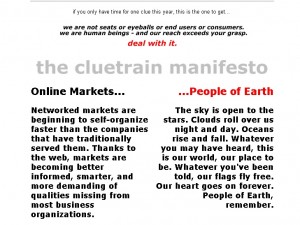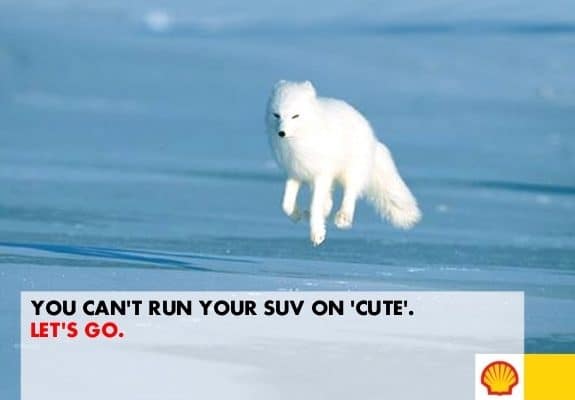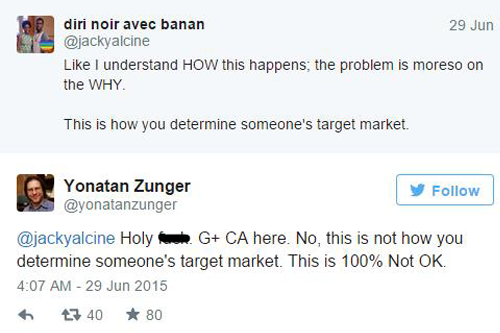We’re always advising brands that they need to be open, honest and down to earth on social media. That there needs to be a real person behind the account responding to people as individuals and creating a connection with followers.
Question and answer sessions give followers the chance to get their voices heard by someone in charge, and allows the brand to demonstrate how in-touch it is with customers. What can possibly go wrong?
Timing
In October, British Gas announced a price hike of more than 10 per cent, causing outrage in the media and from consumers. To combat this, the company held a Twitter Q&A the next day.
Its customer services director would be making himself available to answer questions. That’s a nice way for a company to show customers that it cares about their concerns, right?
We are here with our Customer Service Director, Bert Pijls, answering your questions until 2pm #AskBG pic.twitter.com/csbaqTfWwu
— British Gas (@BritishGas) October 17, 2013
With an emotive topic like price rises, many people aren’t going to be polite or reasonable. Those that take the time to participate in a Q&A will be bristling with indignation and ready to deliver a verbal kicking to the brand, or to make a point, which is what happened with #AskBG.
.@BritishGas #AskBG What is the best temperature to thaw an elderly relative at and what seasoning would you use with one?
— TechnicallyRon (@TechnicallyRon) October 17, 2013
Does today’s @BritishGas price rise show it’s time to #freezethatbill? #askBG — The Labour Party (@UKLabour) October 17, 2013
I actually managed to capture my granddads reaction to British Gas price rise on camera… #askBG pic.twitter.com/dD3rJZ49RL — George Aylett (@georgeayl) October 18, 2013
Dear British Gas Have you had to put your prices up so much because you paid 5 bosses £16m this year? #AskBG — Juicy Jon (@Juicy_Jon) October 17, 2013
The timing of this Twitter Q&A was insensitive, and made the company look out of touch, not with customers concerns, but with the reality of social media. How did they think this wasn’t going to be a huge mess, reputation wise?
Likeability
Soon after the British Gas Twitter Q&A, came Ryanair’s turn. Now, Ryanair seems to thrive on getting bad PR, so it’s not that much of a shock that they decided to do a Q&A themselves. Using the hashtag #GRILLMOLL, tweeters could ask the CEO anything they liked.
Here we go! #GrillMOL pic.twitter.com/yz1UdxnNro — Ryanair (@Ryanair) October 21, 2013
It started off…not very well.
Whoever is behind this @Ryanair is so lame. #TellMOL he needs therapy. #NotImpressed (@Claire_Phipps@EverydaySexism) pic.twitter.com/oyOYEZhU3D — Aakriti Kaushik (@aakritik) October 21, 2013
But then, you know exactly what you’re going to get with the CEO of Ryanair.
@alexkitch Not seats but beds. Mile high club anyone? #GrillMOL — Ryanair (@Ryanair) October 21, 2013
@OriginalRogue@StuartMRobinson Dat’s an outrageous slur. All four of four RYR flights are fuelled with Lep wee and my bulls**t! #GrillMOL — Ryanair (@Ryanair) October 21, 2013
That doesn’t mean people have to like it (or him):
Were you born an arsehole or has it progressed throughout your life? @Ryanair#GrillMOL — Darragh Cawley (@Darragh121) October 21, 2013
But some liked his sense of humour:
@Ryanair#AskMOL Flew last November with a broken ankle, thanks to all staff who made my journey a lot easier. — Ciara (@Ciara_Pioneer) October 25, 2013
Ryanair held the Q&A after announcing improvements to some of its rather stringent policies, so this could have been one of the rare occasions where the company bagged some good PR. Instead, it got lots of coverage for its CEO having a bit of a laugh getting people riled on Twitter.
Celebrity Q&As
Celebrities (or, more accurately, their social media teams) tend to do Twitter Q&A’s well, but the one of the best so far in 2013 was that held by the rapper Jay-Z back in July. He managed to answer questions, be authentic and highlight the need for Twitter to introduce a better conversation function.
RT @iMSexierDenU Jay Z hasn’t gone to twitter jail yet? [I have 5 passports I’m never going…..] — Mr. Carter (@S_C_) July 8, 2013
Even Paul McCartney’s been getting in on the act.
Cheers @JacksonBeatles The last albums I bought were by @kanyewest@The_National@thecivilwars and @s_c_ (Jay Z) #askMacca — Paul McCartney (@PaulMcCartney) October 3, 2013
Brands have been known to ask questions during a celebrity Q&A – which is one way of getting noticed on Twitter without the risk of running a Q&A.
Organisations & Government
Organisations like the National Union of Students have held Twitter Q&As, in the case of the NUS, to give new students free advice. The Foreign and Commonwealth office holds Q&As under the hashtag #askFCO.
.@myraemacdonald@DFID_UK aid over the next 4 yrs will benefit 4m Pakistani children in school, recruit & train 45,000 new teachers #askfco
— Sayeeda Warsi (@SayeedaWarsi) October 16, 2013
And of course, there’s President Obama’s famous Twitter Q&A of December 2012.
Businesses shouldn’t get involved in social media without knowing why they’re doing it. What’s the goal? What does a win look like? Twitter Q&As need to be approached with the same questions. In the case of British Gas, it looks like the aim may have been to offer some accountability and try to mitigate the reputational damage – but it just made things worse. As for Ryanair – well, your guess is as good as mine.






